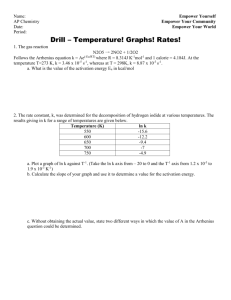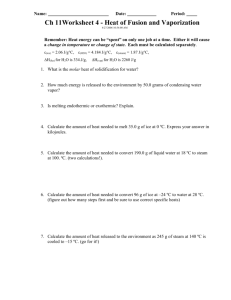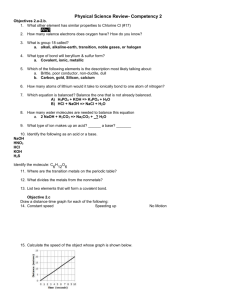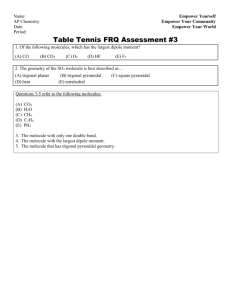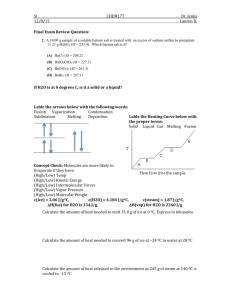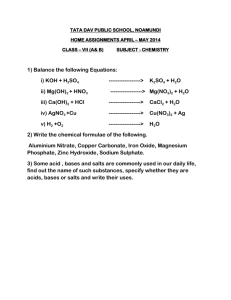Calorimetry and ∆H of Reaction Problems
advertisement
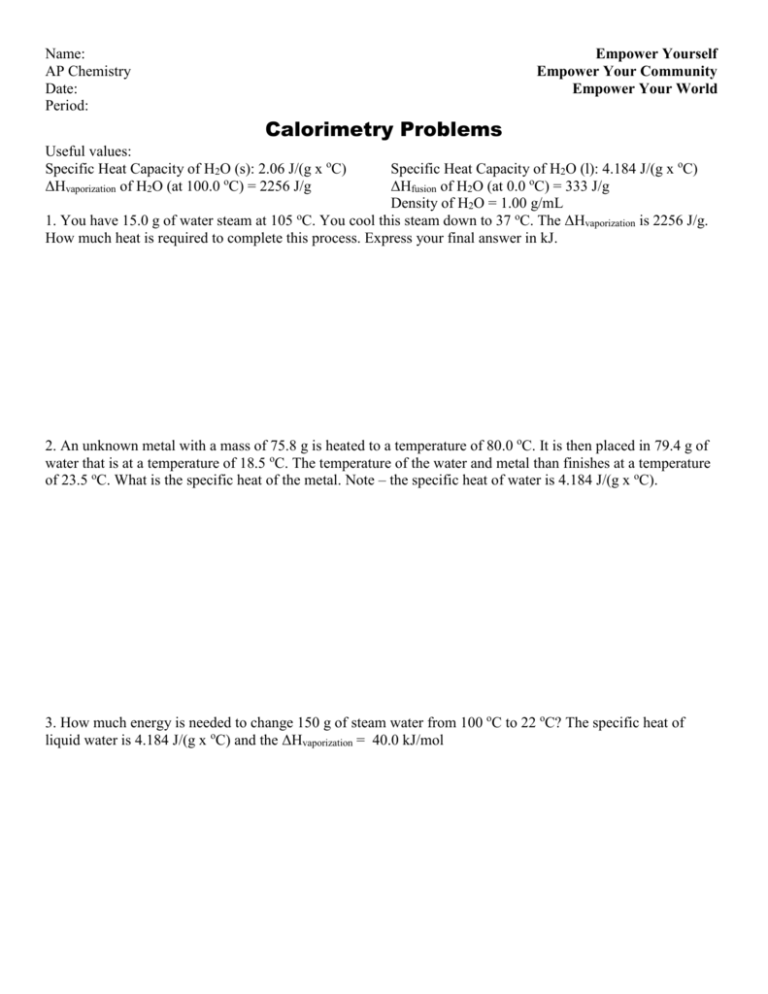
Name: AP Chemistry Date: Period: Empower Yourself Empower Your Community Empower Your World Calorimetry Problems Useful values: Specific Heat Capacity of H2O (s): 2.06 J/(g x oC) ΔHvaporization of H2O (at 100.0 oC) = 2256 J/g Specific Heat Capacity of H2O (l): 4.184 J/(g x oC) ΔHfusion of H2O (at 0.0 oC) = 333 J/g Density of H2O = 1.00 g/mL 1. You have 15.0 g of water steam at 105 oC. You cool this steam down to 37 oC. The ΔHvaporization is 2256 J/g. How much heat is required to complete this process. Express your final answer in kJ. 2. An unknown metal with a mass of 75.8 g is heated to a temperature of 80.0 oC. It is then placed in 79.4 g of water that is at a temperature of 18.5 oC. The temperature of the water and metal than finishes at a temperature of 23.5 oC. What is the specific heat of the metal. Note – the specific heat of water is 4.184 J/(g x oC). 3. How much energy is needed to change 150 g of steam water from 100 oC to 22 oC? The specific heat of liquid water is 4.184 J/(g x oC) and the ΔHvaporization = 40.0 kJ/mol Name: Empower Yourself AP Chemistry Empower Your Community Date: Empower Your World Period: 4. A 130.2 g sample of nickel heated to 95.0 oC is placed on 15.0 g of ice at -10.0 oC in an insulated container. The final temperature of the system is 1.55 oC. Assuming no heat escapes from the insulated container, what is the specific heat capacity of nickel? 5. You run the following reaction between HCl and NaOH: HCl + NaOH H2O + NaCl If you mix together 50.0 mL of 0.998 M NaOH and 75.0 mL of 0.535 M HCl and a temperature change of 3.5 o C is observed, then what is the ΔHrxn for this reaction? Assume no heat is lost to the calorimeter and that the density of the solutions are 1.00 g/mL and specific heat is 4.184 J/ (g x oC). Name: Empower Yourself AP Chemistry Empower Your Community Date: Empower Your World Period: 6. When 50.0 mL of 0.910 M H2SO3 at 23.1 oC is mixed with 150.0 mL of 0.582 M KOH at 23.1 oC in a coffee cup calorimeter, the temperature of the final solution is determined to be 32.8 oC. The density of the final solution is 1.00 g/mL; the specific heat capacity of the final solution is 4.184 J/(g x oC). Assuming no los of heat to the calorimeter, what is the value of ΔHrxn for the reaction written below? HINT – Don’t forget to find the limiting reactant! H2SO3 (aq) + 2KOH (aq) 2 H2O (l) + K2SO3 (aq)

